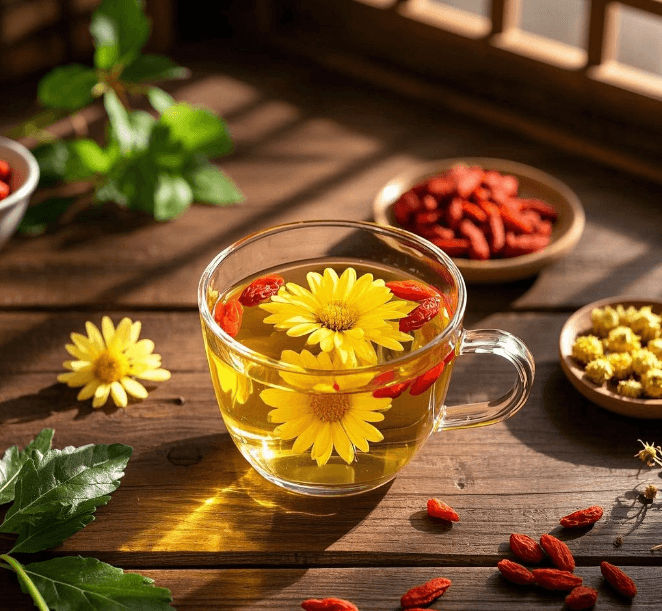
Unlock Your Mind's Potential: The Science Behind Tea's Memory-Boosting Powers
Share
Table of Contents:
In today's fast-paced world, where information and demands on our cognitive abilities are constantly increasing, maintaining a sharp and resilient memory has become more crucial than ever. As we navigate the complexities of modern life, the search for natural, sustainable solutions to enhance brain function has gained significant traction. One such remarkable elixir that has captured the attention of scientists and tea enthusiasts alike is the humble cup of tea.
At furn-store.com, we are passionate about not only providing high-quality home products but also empowering our customers with knowledge that can enrich their lives. In this comprehensive blog post, we will delve into the fascinating science behind tea's remarkable ability to boost memory and cognitive performance, offering insights that may transform the way you approach your daily tea ritual.
Understanding Tea and Brain Health
Tea, a beverage that has been revered for centuries, is a veritable treasure trove of bioactive compounds that can profoundly impact our cognitive functions. From the catechins in green tea to the theaflavins in black tea, each variety of this ancient elixir boasts a unique chemical profile that interacts with the intricate workings of the human brain.
Biochemical Components in Tea
The key to tea's memory-enhancing prowess lies in its rich array of phytochemicals, particularly the polyphenols and amino acids. These compounds have been shown to exert a multifaceted influence on brain health, from modulating neurotransmitter levels to promoting neuroplasticity – the brain's remarkable ability to adapt and reorganize itself in response to new experiences.
Mechanisms of Memory Enhancement
The mechanisms by which tea can improve memory and cognitive function are complex and multifaceted. Polyphenols, such as the renowned epigallocatechin gallate (EGCG) found in green tea, have been demonstrated to enhance synaptic plasticity, the process by which connections between neurons are strengthened or weakened in response to changes in their activity. This, in turn, facilitates the formation and consolidation of new memories.
Moreover, the amino acid L-theanine, abundant in tea, has been linked to increased alpha wave activity in the brain, which is associated with a state of relaxed alertness – the perfect balance for optimal cognitive performance.
Types of Tea and Memory Benefits
While all varieties of tea possess remarkable health benefits, each type offers unique advantages when it comes to memory enhancement. Let's explore the specific ways in which different teas can contribute to improved cognitive function.
Green Tea
Renowned for its high concentration of catechins, green tea has been the subject of extensive research on its neuroprotective and memory-boosting properties. Studies have shown that the antioxidant and anti-inflammatory effects of green tea compounds can help protect the brain from age-related cognitive decline, while also enhancing learning and memory formation.
Black Tea
The oxidation process that transforms green tea leaves into black tea results in the formation of theaflavins and thearubigins, which have been linked to improved attention, processing speed, and working memory. Black tea's unique blend of caffeine and L-theanine has also been found to enhance focus and concentration, making it an excellent choice for those seeking a cognitive boost.
White Tea
Minimally processed and rich in polyphenols, white tea has been shown to possess potent neuroprotective effects. Its ability to modulate neuroinflammation and support neuronal health can contribute to enhanced memory consolidation and recall.
Pu-erh Tea
This fermented tea variety has gained attention for its potential to improve cognitive function, particularly in the areas of memory and executive function. The complex array of bioactive compounds in pu-erh tea, including theabrownins and theafulvins, may help to optimize brain health and cognitive performance.
Specialty Memory-Boosting Teas
In addition to the well-known tea varieties, there are also specialized blends that incorporate herbs and botanicals specifically chosen for their memory-enhancing properties. For example, lemon balm tea has been found to improve episodic memory, while earl grey tea, with its bergamot essence, may enhance attention and focus.
Scientific Research on Tea and Cognitive Function
The scientific community has dedicated significant efforts to unraveling the intricate relationship between tea consumption and cognitive function. The findings from these studies are both compelling and promising.
Neurological Studies
Neuroimaging studies have revealed that regular tea consumption is associated with increased activity in brain regions responsible for memory, attention, and executive function. These findings suggest that the bioactive compounds in tea can positively influence neural connectivity and brain network dynamics, ultimately enhancing cognitive performance.
Long-term Memory Improvement Evidence
Longitudinal studies have demonstrated that consistent tea drinking over an extended period can lead to significant improvements in long-term memory and overall cognitive resilience. This is particularly relevant as we age, as tea consumption has been linked to a reduced risk of age-related cognitive decline and neurodegenerative diseases.
Neuroplasticity and Tea Consumption
The ability of the brain to adapt and reorganize itself, known as neuroplasticity, is a crucial factor in maintaining cognitive health. Emerging research indicates that the polyphenols and amino acids found in tea can actively promote neuroplasticity, facilitating the formation of new neural connections and enhancing the brain's capacity for learning and memory.
Recommended Tea Drinking Practices
To maximize the memory-boosting benefits of tea, it is essential to adopt mindful and informed tea-drinking practices. At furn-store.com, we are committed to guiding our customers towards a more enriching tea experience.
Optimal Brewing Techniques
The way tea is brewed can significantly impact the bioavailability and potency of its active compounds. We recommend using freshly drawn, filtered water and steeping the tea leaves for the appropriate duration to ensure the optimal extraction of beneficial phytochemicals.
Daily Consumption Guidelines
While the optimal daily intake of tea for cognitive enhancement may vary from individual to individual, research suggests that consuming 2-3 cups of high-quality tea per day can provide measurable benefits for memory and overall brain health.
Quality of Tea Selection
The quality of the tea leaves used can greatly influence the concentration and composition of the bioactive compounds. At furn-store.com, we carefully curate our tea selections to ensure that our customers have access to the finest, most potent varieties that can deliver tangible cognitive benefits.
Furn-store Tea Product Recommendations
At furn-store.com, we are proud to offer a diverse range of premium tea products that cater to the needs of discerning tea enthusiasts and those seeking to enhance their cognitive abilities.
Curated Tea Selections
Our tea collection features a carefully curated selection of green teas, black teas, white teas, and pu-erh teas, each chosen for its exceptional quality and memory-boosting potential.
Quality Assurance
We prioritize sourcing our teas from reputable, sustainable suppliers who adhere to the highest standards of cultivation and processing, ensuring that our customers receive the purest, most potent tea leaves.
Unique Tea Offerings
In addition to our core tea selections, we also offer specialty blends infused with herbs and botanicals known for their memory-enhancing properties, allowing our customers to explore the full spectrum of cognitive-boosting tea experiences.
Lifestyle Integration
While the scientific evidence on tea's memory-boosting powers is compelling, it is important to recognize that the benefits of tea consumption are most effectively realized when integrated into a holistic, brain-healthy lifestyle.
Combining Tea Drinking with Cognitive Exercises
Pairing your daily tea ritual with activities that challenge and stimulate the mind, such as puzzles, memory games, or learning a new skill, can create a synergistic effect, further enhancing cognitive performance and long-term memory retention.
Holistic Approach to Memory Enhancement
By incorporating tea drinking into a broader lifestyle that prioritizes physical activity, stress management, and a nutrient-rich diet, you can unlock the full potential of tea's memory-boosting properties and cultivate a robust, resilient brain.
Conclusion
As we navigate the ever-evolving demands of the modern world, the simple act of sipping a cup of tea can become a powerful tool for unlocking our cognitive potential. The scientific evidence is clear: tea, with its remarkable array of bioactive compounds, can profoundly impact memory, focus, and overall brain health.
At furn-store.com, we are committed to empowering our customers with the knowledge and resources to harness the memory-boosting powers of tea. By integrating mindful tea consumption into a holistic, brain-healthy lifestyle, you can embark on a journey of cognitive enhancement and unlock the full potential of your mind.
So, brew a cup of your favorite tea, savor its aroma, and let the science-backed benefits of this ancient elixir guide you towards a sharper, more resilient memory. The path to unlocking your mind's true potential starts with the humble, yet extraordinary, cup of tea.








